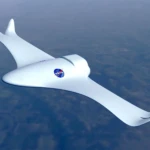CNC or computer numerical control, machining is a complex process involving the use of computer-controlled machines to cut, shape and assemble various materials. For those interested in pursuing a career in CNC processing or just want to learn more about the process, a common question arises: Is CNC difficult to learn?
The answer to this question depends on a variety of factors, including the individual’s previous experience with machinery, the comfort of the technology, and the time they are willing to spend studying. However, with the right guidance and resources, anyone can learn CNC machining.
One of the main challenges in learning CNC machining is understanding the programming language used to control the machine. G code and M code are the two most common programming languages used in CNC machining, and for beginners they can be complex and difficult to learn. Additionally, CNC machines require regular maintenance and troubleshooting, which is also a challenge for those in the field.
Despite these challenges, there are many resources to help individuals learn CNC machining. Online tutorials, training programs and certification courses can provide a comprehensive introduction to CNC machining and help individuals develop the skills they need to succeed in the field. Many manufacturers, such as Light Light, also provide training and support for their machines, which can be a valuable resource for those who wish to learn.
Light Light, a professional five-axis CNC machining manufacturer, has advanced equipment and production technology, enabling them to provide high-quality custom precision machining services. With its expertise and resources, individuals can learn about the latest technologies and technologies in CNC machining and gain hands-on experience with the latest equipment.
In addition to formal training and education, there are many online resources and communities to help individuals learn CNC machining. Online forums and discussion groups can provide an individual with a platform to ask questions, share knowledge and learn from others in the field. YouTube tutorials and online videos can also provide visual introductions to CNC machining and help individuals understand complex concepts and techniques.
In short, while CNC machining may present some challenges for beginners, it is absolutely possible to learn with the right resources and dedication. By leveraging online tutorials, training programs, and certification courses, individuals can develop the skills they need to succeed in the field. Borrowing the support of manufacturers like Great Light, individuals can also gain hands-on experience in advanced equipment and technology to prepare them for their successful career in CNC machining.
FAQ:
Q: What is CNC processing?
A: CNC machining is a process that involves the use of computer-controlled machines to cut, shape and assemble various materials.
Q: Is CNC processing difficult to learn?
A: While CNC machining may present some challenges for beginners, it is absolutely possible to learn through the right resources and dedication.
Q: What is the most common programming language used in CNC machining?
Answer: G code and M code are the two most common programming languages used in CNC machining.
Q: What resources can help individuals learn CNC processing?
A: Online tutorials, training programs, certification courses and manufacturer support can all help individuals learn CNC machining.
Q: Can I learn CNC processing online?
A: Yes, there are many online resources to help individuals learn CNC machining, including tutorials, videos and online forums.
Q: How long does it take to learn CNC processing?
A: The time required to learn CNC machining depends on the individual’s previous experience and the time they are willing to spend on their studies. But with dedication and the right resources, individuals can develop the skills they need to succeed in the field in a relatively short period of time.
Q: What kind of job is available in CNC machining?
A: CNC machining is a highly sought after skill, with many job opportunities in industries such as manufacturing, aerospace and automotive.

















